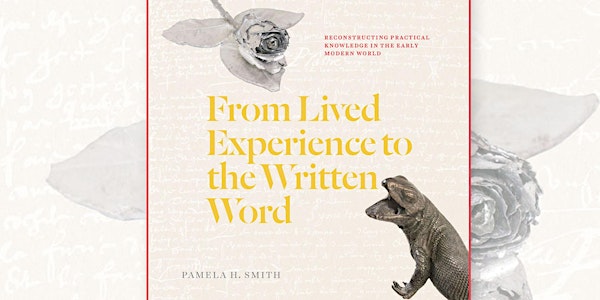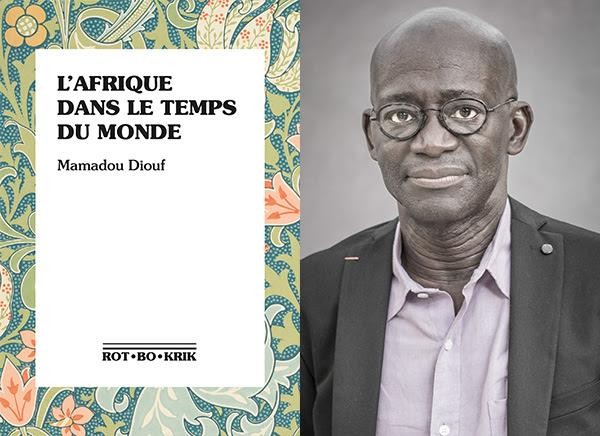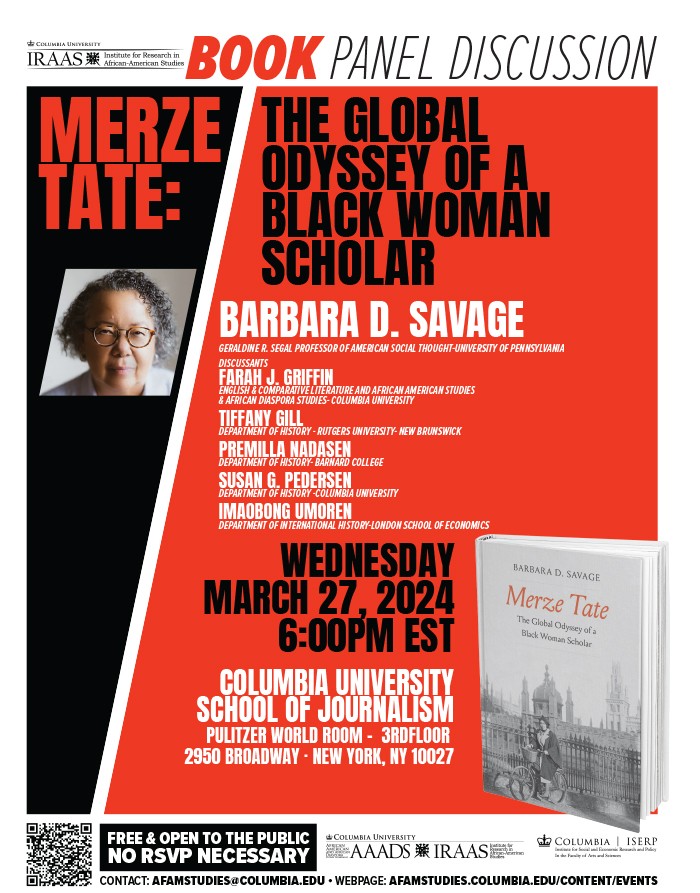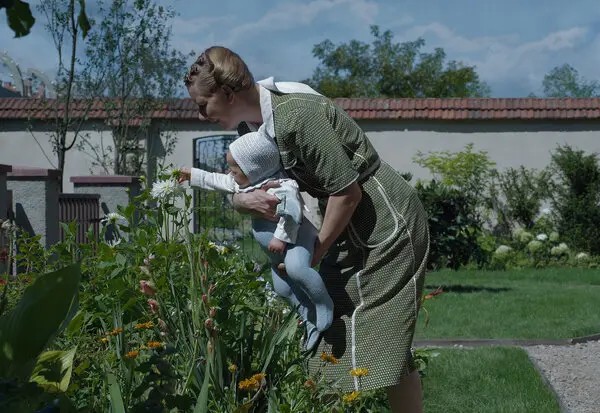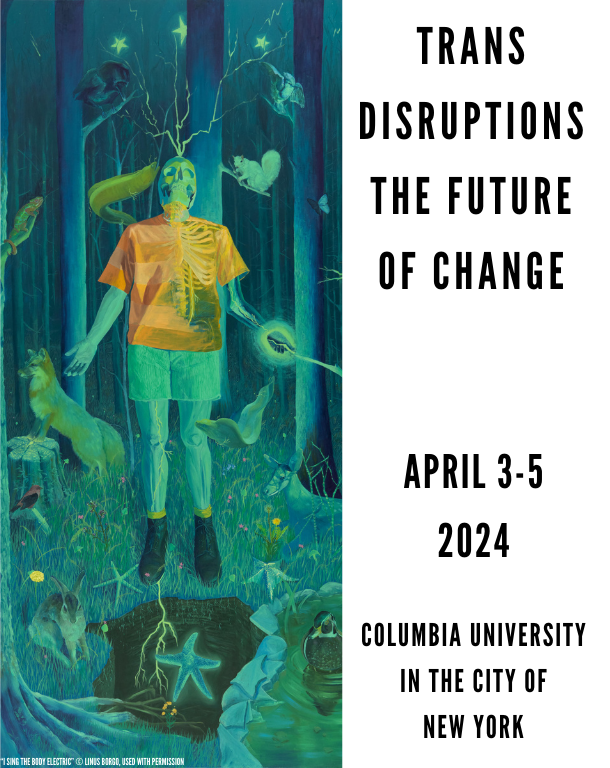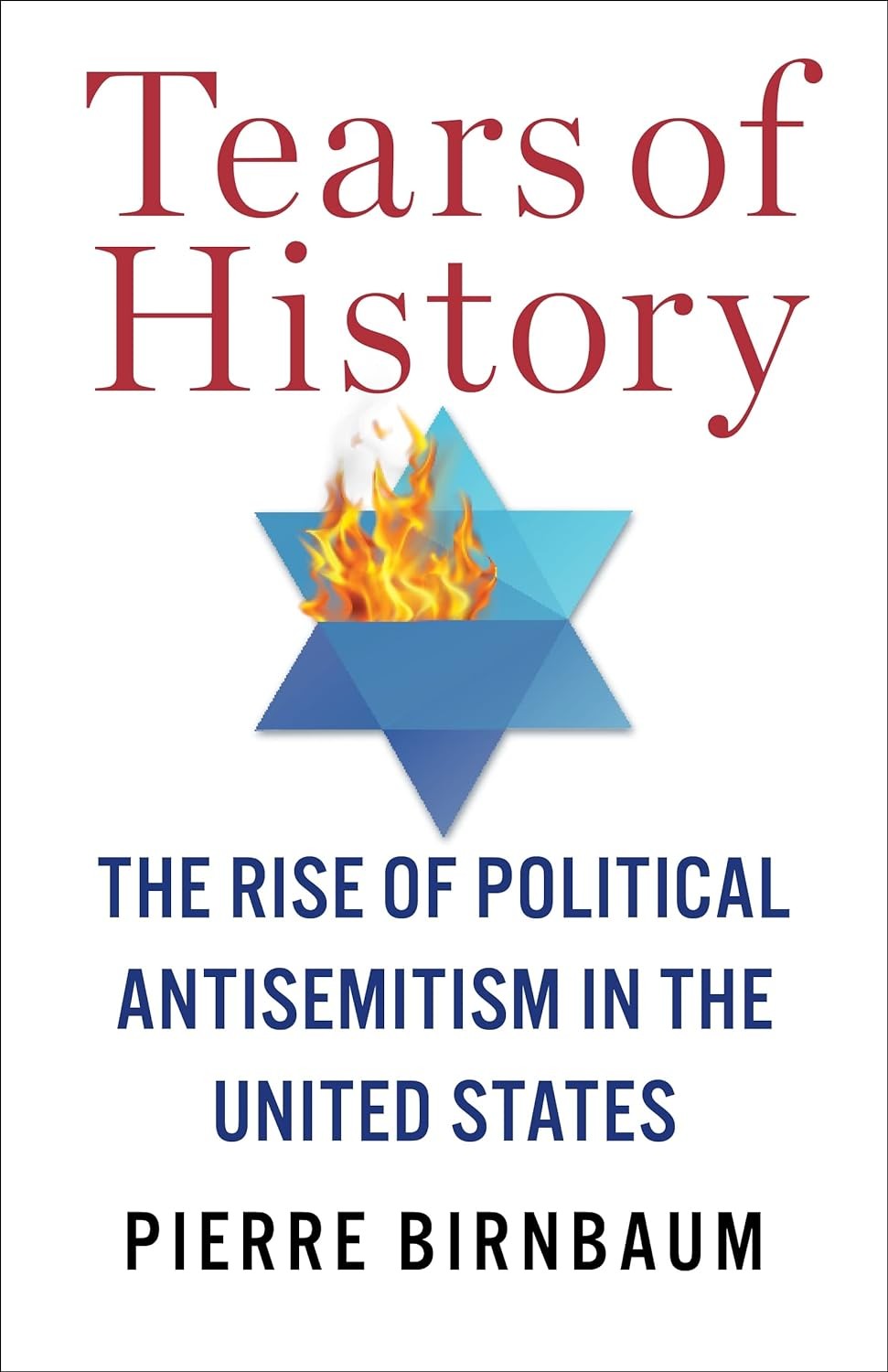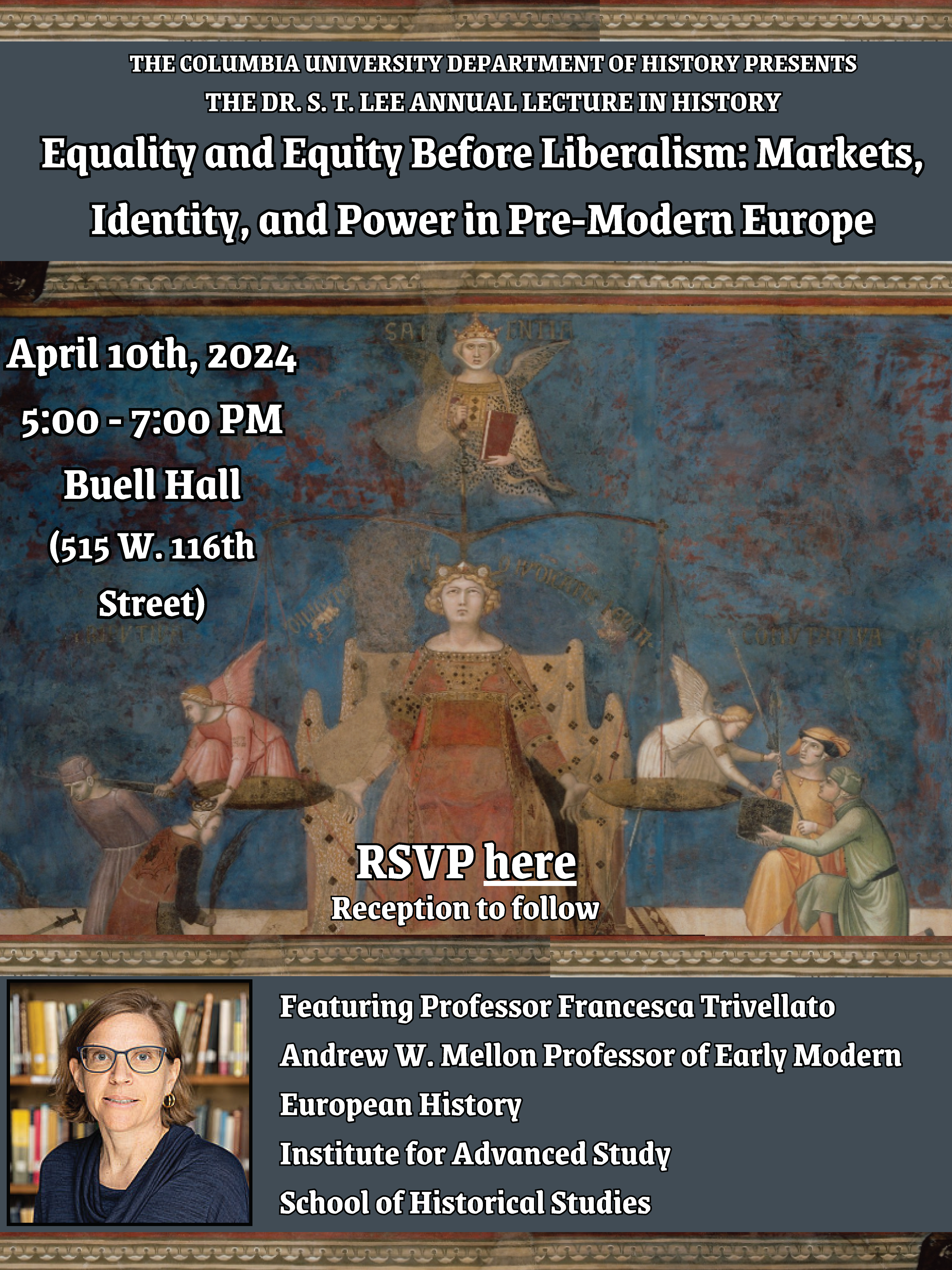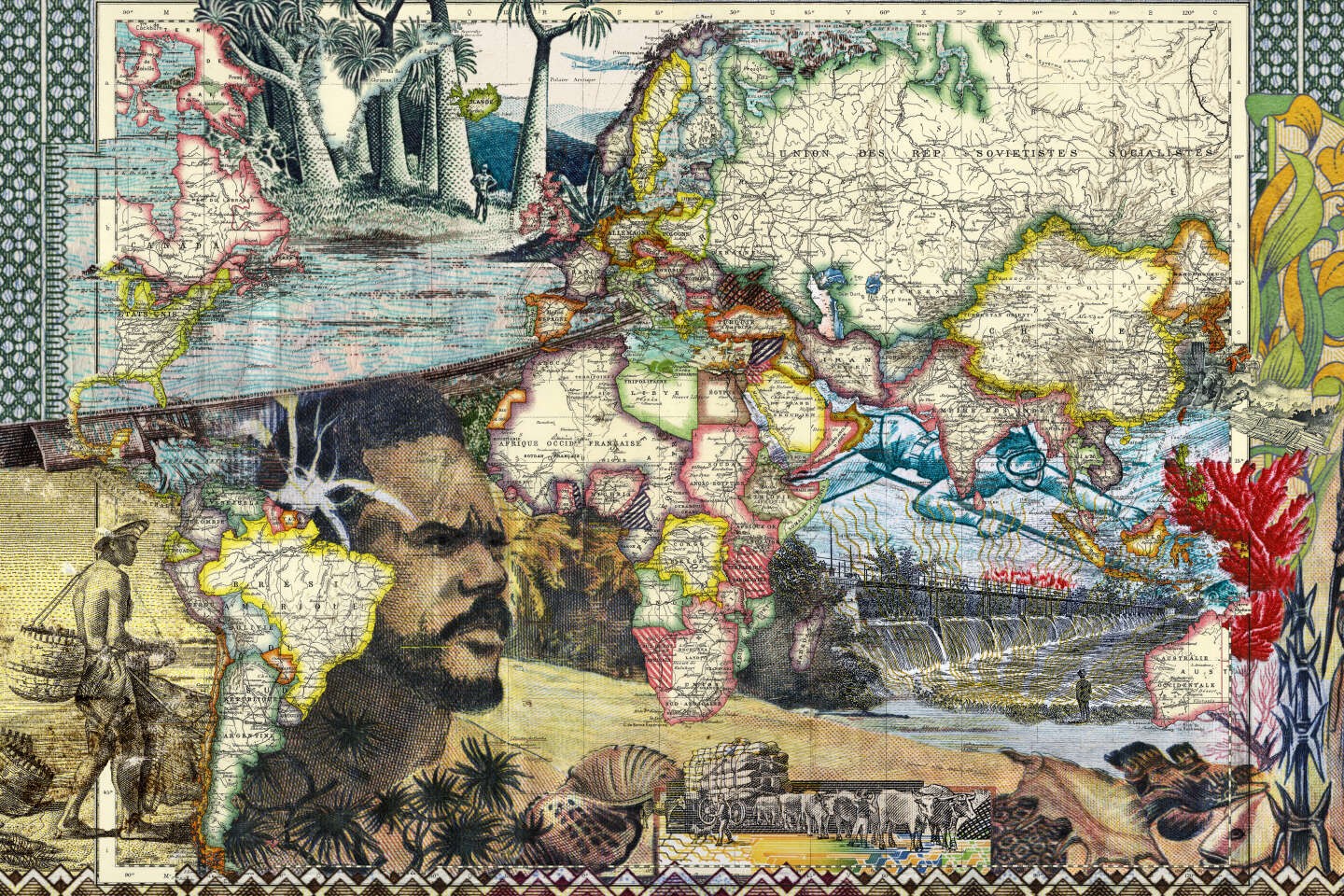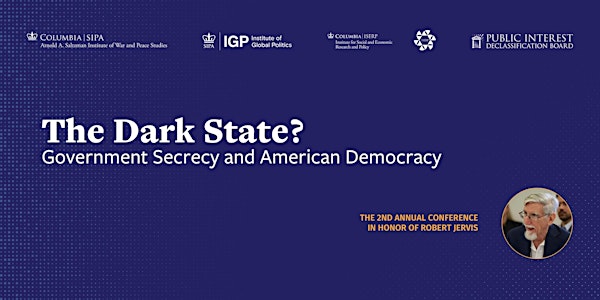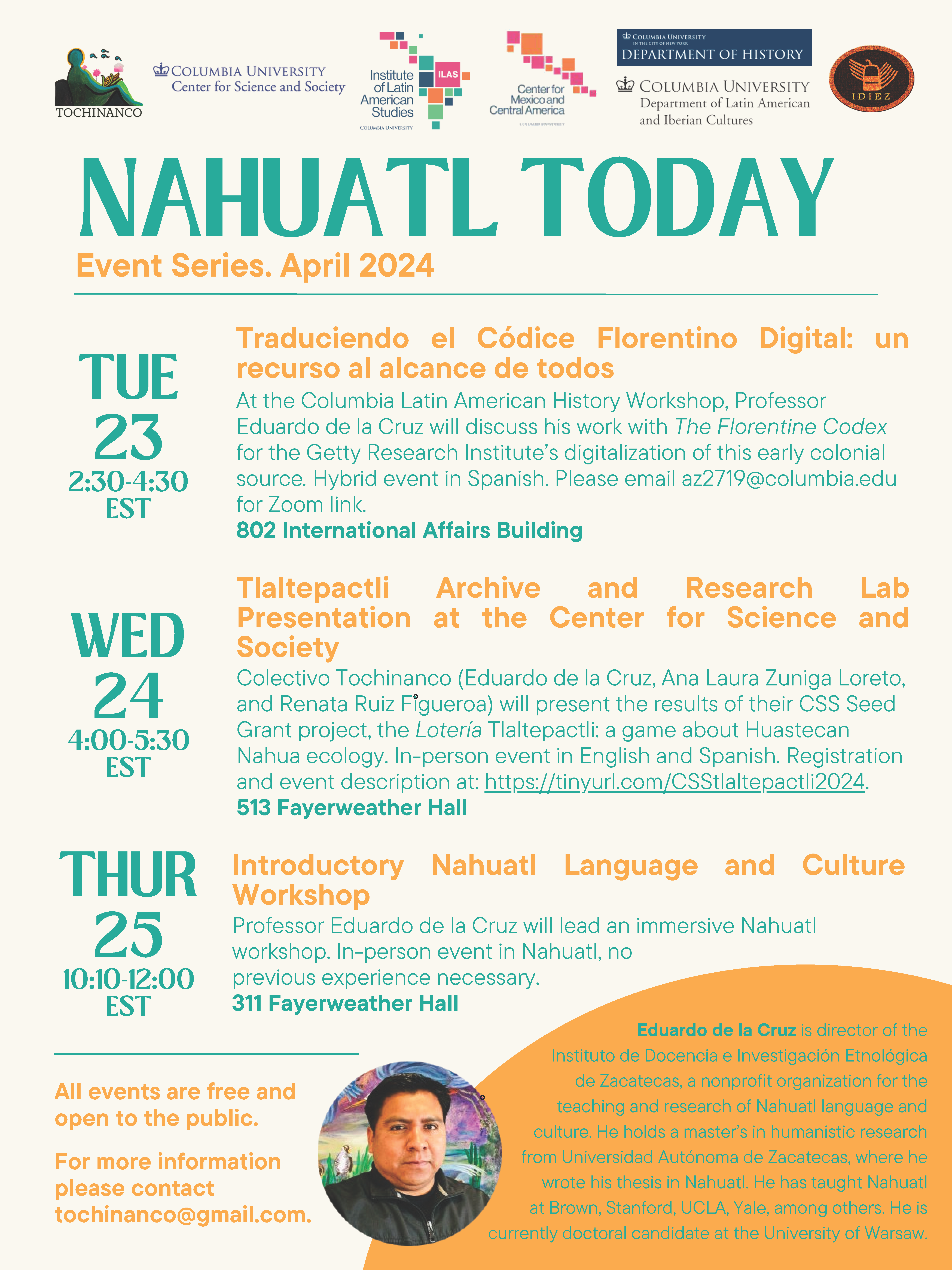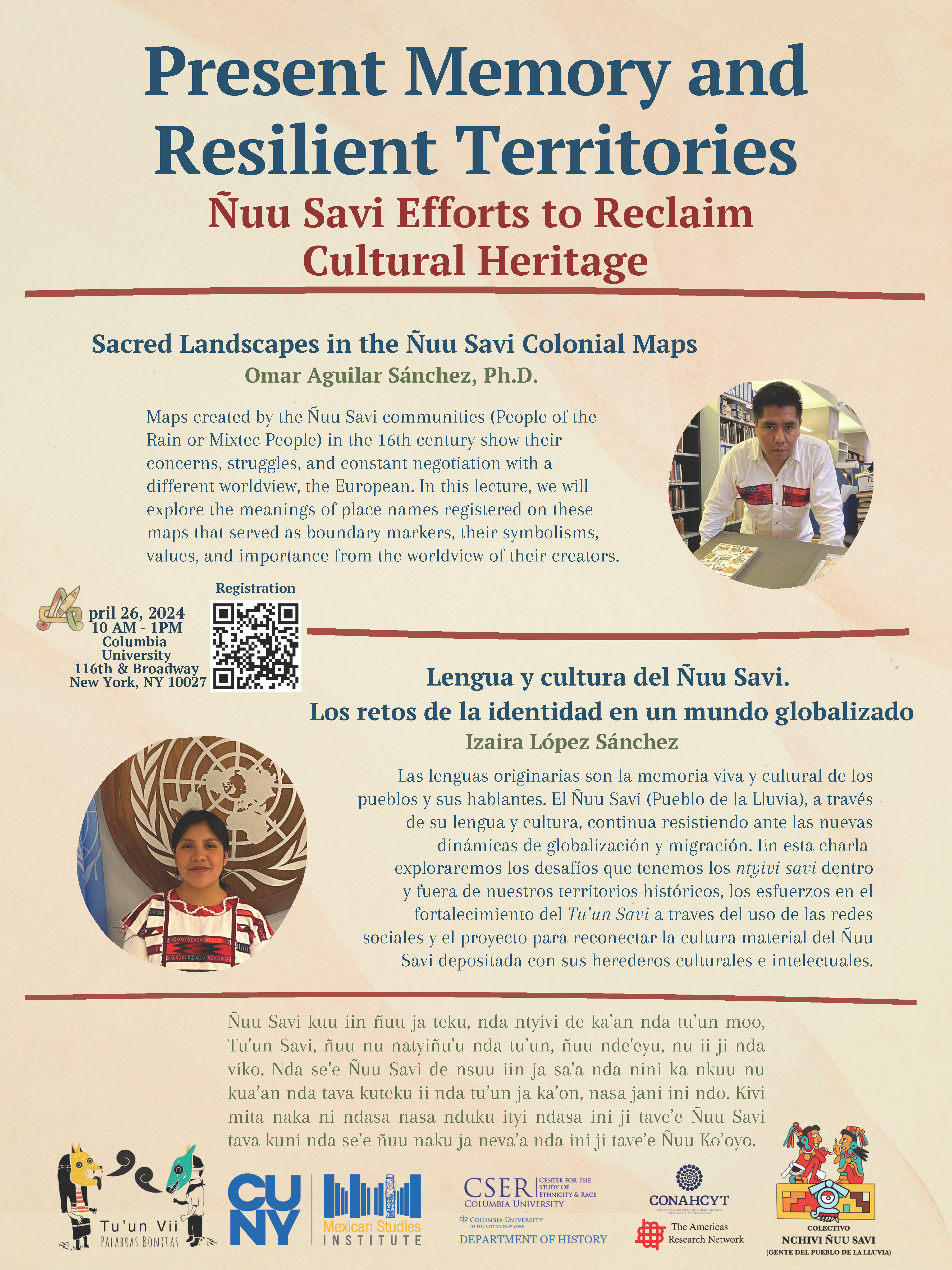PAST EVENTS
march 2024
Event Details
Date: Friday, March 1st, 2024
Event Details
Date: Friday, March 1st, 2024
Time: 12:15 PM
Location: Heyman Center for the Humanities (74 Morningside Dr, New York, NY 10027)
More information available here. Zoom link available here.
by Pamela H. Smith
In From Lived Experience to the Written Word, Pamela H. Smith considers how and why, beginning in 1400 CE, European craftspeople began to write down their making practices. Rather than simply passing along knowledge in the workshop, these literate artisans chose to publish handbooks, guides, treatises, tip sheets, graphs, and recipe books, sparking early technical writing and laying the groundwork for how we think about scientific knowledge today.
Focusing on metalworking from 1400–1800 CE, Smith looks at the nature of craft knowledge and skill, studying present-day and historical practices, objects, recipes, and artisanal manuals. From these sources, she considers how we can reconstruct centuries of largely lost knowledge. In doing so, she aims not only to unearth the techniques, material processes, and embodied experience of the past but also to gain insight into the lifeworld of artisans and their understandings of matter.
About the Author
Pamela H. Smith is the Seth Low Professor of History at Columbia University and founding director of the Center for Science and Society and of its cluster project, the Making and Knowing Project. She is the author of The Business of Alchemy and The Body of the Artisan, the latter also published by the University of Chicago Press. She is the co-editor of Ways of Making and Knowing and The Matter of Art and editor of Entangled Itineraries.
About the Speakers
Caroline Bynum works on the religious, cultural, social, and intellectual history of western Europe from late antiquity to the end of the sixteenth century. In the 1980s and 1990s, her work on gender and the history of the body established some of the paradigms still used in medieval studies. Recently her research has focused on devotional practices, especially devotional objects, in the fifteenth and sixteenth centuries. She is currently exploring the paradox of Catholic survivals, including the survival of women’s monasticism, in Protestant Germany. She is member of the Columbia University Senior Scholars and University Professor Emerita, Medieval Europe, in the History Department at Columbia University.
Deborah L. Krohn is an Associate Professor, Chair of Academic Programs, and Coordinator for History and Theory of Museums at Bard Graduate Center. Her research and teaching areas include early modern European cultural history, history and theory of museums, culinary history, and history of the book. She is most interested in exploring the relationships between objects of daily life, including the arts of the kitchen and table, and the dissemination of both learned and practical knowledge through books and prints.
Pablo Piccato is a professor in the Department of History at Columbia University. His research and teaching focus on modern Mexico, particularly on crime, politics, and culture. He has taught as visiting faculty in universities in Mexico, Argentina, Brazil, and France, and has been director of Columbia’s Institute of Latin American Studies, Vice Chair of the Department of History, and University Senator. His books include City of Suspects: Crime in Mexico City, 1900-1931 (2001), The Tyranny of Opinion: Honor in the Construction of the Mexican Public Sphere (2010), and A History of Infamy: Crime, Truth, and Justice in Mexico (2017).
Caterina Pizzigoni is an Associate Professor in the Department of History at Columbia University. She specializes in the colonial history of Latin America. Her interests include Indigenous populations, sources in Nahuatl (Indigenous language of central Mexico), social history, household and material culture, religion, and gender. You can listen to her interview with Professor Vicky Murillo (Director of ILAS-Columbia) for the podcast series Unpacking Latin America.
Please email disability@columbia.edu to request disability accommodations. Advance notice is necessary to arrange for some accessibility needs. This event will be recorded. By being present, you consent to the SOF/Heyman using such video for promotional purposes.
Time
(Friday) 12:15 pm - 1:30 pm
Location
The Heyman Center for the Humanities (74 Morningside Drive, New York, NY 10032 United States)
The Heyman Center for the Humanities (74 Morningside Drive, New York, NY 10032 United States)
6mar4:20 pm- 6:00 pmThe Slave Manifest: A Legal History
Event Details
Legal History Workshops - Spring 2024 Date: Wednesday, March 6th, 2024 Time: 4:20 - 6:00 PM
Event Details
Legal History Workshops – Spring 2024
Date: Wednesday, March 6th, 2024
Time: 4:20 – 6:00 PM
Location: Fayerweather 411 (1180 Amsterdam Avenue, New York, NY 10027)
Time
(Wednesday) 4:20 pm - 6:00 pm
25mar6:00 pm- 7:00 pmAfrica in the Time of the World
Event Details
Date: Monday, March 25th, 2024. Time: 6:00 - 7:00 PM
Event Details
Date: Monday, March 25th, 2024.
Time: 6:00 – 7:00 PM
Location: East Gallery, Maison Française, Buell Hall (515 West 116th Street, New York, NY 10027)
RSVP here.
Mamadou Diouf, in conversation with Manthia Diawara, Emmanuelle Saada, and Gayatri Spivak.
In his new book, L’Afrique dans le temps du monde, historian Mamadou Diouf examines the impact of African historians on the field of history at the turning point when Africa achieved independence from colonial rule. African history asserted the value and importance of a past that had been depreciated under Western imperialism, while also decentering history through the use of libraries such as the Islamic Library and the study of the “Black Atlantic,” a term first coined by British sociologist Paul Gilroy to refer to that hybrid historical reality. This concept aimed to “reinstate Africa to its pioneering role in world history” according to Diouf: “For Africa and the Black diaspora, taking its history into its own hands meant reclaiming cultural, creative, and historiographic parity, and decoupling the concept of the universal from Occidental imperialism.” Mamadou Diouf examines the different currents and schools of African history (those of Dakar, Ibadan, Dar-es-Salaam) and important figures that shaped African historiography, such as Cheikh Anta Diop, and evokes some of its main controversies and debates.
Mamadou Diouf is the Leitner Family Professor of African Studies. His research interests include urban, political, social and intellectual history in colonial and postcolonial Africa. His publications include Tolerance, Democracy, and Sufis in Senegal (ed. 2013), New Perspectives on Islam in Senegal: Conversion, Migration, Wealth, and Power (with Mara A. Leichtman, 2009), and La Construction de l’Etat au Sénégal (with M. C. Diop & D. Cruise O’Brien, 2002), among others.
Manthia Diawara is Professor in the Martin Scorsese Department of Cinema Studies at NYU. He has published widely on the topic of film and literature of the Black Diaspora.
Gayatri Chakravorty Spivak is University Professor and a founding member of the Institute for Comparative Literature and Society at Columbia.
Emmanuelle Saada is Professor of History and French and Chair of the Department of French at Columbia.
This event is co-sponsored by the Columbia Maison Française, Institute of African Studies, Department of History, and MESAAS.
Time
(Monday) 6:00 pm - 7:00 pm
25mar6:10 pm- 7:30 pmBook Talk - Portraits of Empires
Event Details
Date: Monday, March 25th, 2024 Time: 6:10 -
Event Details
Date: Monday, March 25th, 2024
Time: 6:10 – 7:30 PM
Location: Room 807, Schermerhorn Hall (1190 Amsterdam Ave, New York, NY 10027
RSVP here.
On Monday, March 25th the Sakip Sabinci Center for Turkish Studies will be hosting Robyn Dora Radway (Assistant Professor of History, CEU) for a talk on her new book, Portraits of Empires: Habsburg Albums from the German House in Ottoman Constantinople. She will be joined by discussants Pier M. Tommasino (Columbia) and Nebahat Avcıoğlu (Hunter College and CUNY), and moderator A. Tunç Şen (Columbia).
Time
(Monday) 6:10 pm - 7:30 pm
Location
208 Schermerhorn Hall
27mar6:00 pm- 8:00 pmMerze Tate: The Global Odyssey of a Black Woman Scholar
Event Details
Date: Wednesday, March 27th, 2024
Event Details
Date: Wednesday, March 27th, 2024
Time: 6:00 – 8:00 PM
Location: Pulitzer World Room, Columbia University School of Journalism (2950 Broadway, New York, NY 10027)
MERZE TATE: THE GLOBAL ODYSSEY OF A BLACK WOMAN SCHOLAR with author BARBARA D. SAVAGE, Geraldine R. Segal Professor of American Social Thought-University of Pennsylvania.
Discussants
Farah J. Griffin, English & Comparative Literature and African-American & African Diaspora Studies- Columbia University
Tiffany Gill, Department of History – Rutgers University- New Brunswick
Premilla Nadasen, Department of History- Barnard College
Susan G. Pedersen, Department of History -Columbia University
Imaobong Umoren, Department of International History-London School of Economics
Location: Columbia University School of Journalism
Pulitzer World Room – 3rd floor
2950 Broadway · New York, NY 10027
No RSVP Necessary – Free & Open To The Public
Barbara D. Savage is an historian from the University of Pennsylvania and the Geraldine R. Segal Professor of American Social Thought in the Department of Africana Studies where she also served from 2013-2017 as inaugural chair. In 2018-19, she was the Vyvyan Harmsworth Visiting Professor of American History at the University of Oxford and remains a Distinguished Fellow at its Rothermere American Institute. Savage is the author of Merze Tate: The Global Odyssey of a Black Woman Scholar (Yale, 2023) which won the 2024 ASALH Best Book Prize. She is the author of two other prize-winning books, most recently Your Spirits Walk Beside Us: The Politics of Black Religion which received the 2012 Grawemeyer Prize in Religion. She also co-edited two books: Toward an Intellectual History of Black Women and Women and Religion in the African Diaspora.
Book Synopsis
“A powerful and inspiring biography of Merze Tate, a trailblazing Black woman scholar and intrepid world traveler. Born in rural Michigan during the Jim Crow era, the bold and irrepressible Merze Tate (1905–1996) refused to limit her intellectual ambitions, despite living in what she called a “sex and race discriminating world.” Against all odds, the brilliant and hardworking Tate earned degrees in international relations from Oxford University in 1935 and a doctorate in government from Harvard in 1941. She then joined the faculty of Howard University, where she taught for three decades of her long life spanning the tumultuous twentieth century.
This book revives and critiques Tate’s prolific and prescient body of scholarship, with topics ranging from nuclear arms limitations to race and imperialism in India, Asia, the Pacific, and Africa. Tate credited her success to other women, Black and white, who helped her realize her dream of becoming a scholar. Her quest for research and adventure took her around the world twice, traveling solo with her cameras.
Barbara Savage’s skilled rendering of Tate’s story is built on more than a decade of research. Tate’s life and work challenge provincial approaches to African American and American history, women’s history, the history of education, diplomatic history, and international thought.”
Event Collaborators: African American & African Diaspora Studies Department-Columbia University (AAADS) The Institute for Research in African-American Studies-Columbia University (IRAAS); The Institute For Social And Economic Research And Policy- Columbia University (ISERP)
Time
(Wednesday) 6:00 pm - 8:00 pm
Location
Pulitzer Hall, World Room, 3rd Floor
27mar6:15 pm- 8:00 pmBook Talk: When Men Fell From The Sky
Event Details
Date: Wednesday, March 27th, 2024 Time: 6:15 - 8:00 PM Location: 411 Fayerweather Hall (1180
Event Details
Date: Wednesday, March 27th, 2024
Time: 6:15 – 8:00 PM
Location: 411 Fayerweather Hall (1180 Amsterdam Avenue, New York, NY 10027)
RSVP here.
Book talk by Claire Andrieu, author of “When Men Fell From The Sky – Civilians And Downed Airmen In Second World War Europe” (Cambridge University Press, 2023).
Speakers:
Claire Andrieu, Institut d’Etudes Politiques, Paris
Carol Gluck, Columbia University
Adam Tooze, Columbia University
Between 1940 and 1945, more than 100,000 airmen were shot down over Europe, a few thousand of whom survived and avoided being arrested. When Men Fell from the Sky is a comparative history of the treatment of these airmen by civilians in France, Germany and Britain. By studying the situation on the ground, Claire Andrieu shows how these encounters reshaped societies at a local level. She reveals how the fall of France in 1940 may have concealed an insurrection nipped in the bud, that the ‘People’s War’ in Britain was not merely a myth, and that in Germany, the ‘racial community of the people’ had in fact become a social reality with Allied airmen increasingly subjected to lynching from 1943 onwards. By considering why the treatment of these airmen contrasted so strongly in these countries, Andrieu sheds new light on how civilians reacted when confronted with the war ‘at home’.
This event is sponsored by the European Institute and the Department of History.
Time
(Wednesday) 6:15 pm - 8:00 pm
27mar6:30 pm- 9:30 pmThe Zone of Interest
Event Details
Date: Wednesday, March 27th Time: 6:30 - 9:30 PM Location: East Gallery,
Event Details
Date: Wednesday, March 27th
Time: 6:30 – 9:30 PM
Location: East Gallery, Maison Française, Buell Hall (515 W 116th Street, New York, NY 10027)
RSVP here.
Jonathan Glazer, 2023, 105 min.
Screening and discussion with Jane M. Gaines, Fabien Théofilakis, A. Dirk Moses, and Richard F. Wetzell
The year is 1943. Rudolf Höss and his wife Hedwig strive to build a dream life for their family: their idyllic home, complete with a thriving garden, is separated only by a wall from the horrors of Auschwitz, where Rudolf, a commandant, oversees the Final Solution. As Rudolf’s stature in the government grows, his family remains blissfully ignorant of the atrocities going on just outside their front door – and the fact that their patriarch is a key player in one of history’s darkest chapters. The Zone of Interest transforms Martin Amis’s novel into a chilling and unforgettable treatise on complicity. The film is nominated for five Academy Awards, including Best Picture.
Click here to watch the trailer
Jane Gaines is Professor Emerita of Literature and English, Duke University and currently Professor of Film, Columbia University. She is a founder of the Visible Evidence conference on documentary, and continues to publish on documentary activism, intellectual property in the internet age, and the history of piracy, and has critiqued the “historical turn” in film and media studies.
Fabien Théofilakis is Professor of History at Paris-1, Sorbonne, and the author of numerous publications on wartime captivity and camps in the Second World War, the Eichmann trial and the memory of the Holocaust. He is the Alliance Visiting Professor at Columbia in Spring 2024.
Richard F. Wetzell is a Research Fellow at the German Historical Institute in Washington DC. His research is situated at the intersection of legal history, political history, and the history of science. His publications include Beyond the Racial State: Rethinking Nazi Germany and Crime and Criminal Justice in Modern Germany. He is currently working on a study of racial science and Nazi biopolitics and a history of penal reform in modern Germany.
A. Dirk Moses is the Anne and Bernard Spitzer Professor of International Relations at the City College of New York, and written about genocide in global history, including the Holocaust, most recently, The Problems of Genocide: Permanent Security and the Language of Transgression (2021).
This event is co-sponsored by the Columbia Maison Française, Alliance Program, Department of History, and Deutsches Haus Columbia University.
Time
(Wednesday) 6:30 pm - 9:30 pm
Location
East Gallery, Buell Hall (Maison Française)
East Gallery, Buell Hall (Maison Française)
29mar2:00 pm- 3:30 pmBook Talk - Queer Career: Sexuality and Work in Modern America
Event Details
Date: March 29th, 2024 Location: 411 Fayerweather Hall Time: 2:00 - 3:30 PM
Event Details
Date: March 29th, 2024
Location: 411 Fayerweather Hall
Time: 2:00 – 3:30 PM
The Columbia-New York University 20th/21st Century History Workshop welcomes Margot Canaday (Princeton University), who will be speaking with us about her book, Queer Career: Sexuality and Work in Modern America (Princeton University Press, 2023).
Time
(Friday) 2:00 pm - 3:30 pm
april 2024
3apr - 5apr 39:00 amapr 5Trans Disruptions: The Future of Change Conference
Event Details
Event Details
Date: April 3rd – April 5th, 2024
More information and full schedule available here.
This three-day conference will bring together activists, theorists, artists, and writers to explore the pasts, futures, and in-between times of transgender lives, narratives, and theories. The conference will allow an opportunity to meet, talk, learn, and disrupt the conventional narratives that circulate about bodies, economies, histories, pleasure, revolt, and science.
*This event has received an exemption from the boycott of University events by the organizers of the Columbia University Apartheid Divest (CUAD) group*
RSVP to Trans Disruptions panels here.
While RSVPs are appreciated, they are not required. All panels and keynotes will be open seating on a first-come, first-served basis up to the venue capacity. An RSVP does not guarantee a seat. If you would like to attend a particular panel or keynote, we suggest arriving to the venue 10 minutes early to secure seating.
Time
3 (Wednesday) 9:00 am - 5 (Friday) 5:00 pm
9apr6:00 pm- 7:30 pmTears of History: The Rise of Political Antisemitism in the United States
Event Details
Date: Tuesday, April 9th Time: 6:00 -
Event Details
Date: Tuesday, April 9th
Time: 6:00 – 7:30 PM
Location: East Gallery, Maison Française, Buell Hall (515 W 116th Street, New York, NY 10027)
RSVP here.
Pierre Birnbaum, in conversation with Ira Katznelson and Rebecca Kobrin, moderated by Emmanuel Kattan
Pierre Birnbaum will talk about his book, recently translated by Columbia University Press as Tears of History: The Rise of Political Antisemitism in the United States. He will be joined by Ira Katznelson and Rebecca Kobrin to discuss the book and compare political anti-semitism in the U.S. to the experience of other countries, including France.
Pierre Birnbaum’s book starts from the premise that, for more than a century, the United States has seemed to be a safe haven for many Jews. There has been antisemitic prejudice, but nothing on the scale of the discrimination, persecution, pogroms, and genocide witnessed in Europe. White American ethnic violence has assailed many targets, but Jews have rarely been among them. Observing what he took to be an American exception, the influential historian Salo Baron challenged the “lachrymose conception” of Jewish history as an unending flow of oppressions, and many have followed him in seeing American Jews as sheltered from violence. But in recent years a spate of antisemitic attacks has cast doubt on this rosy view.
Pierre Birnbaum offers a timely reconsideration of the tear-stained pages of Jewish history and the persistence of antisemitism. He explores the promise of American tolerance as well as the darkest moments of American intolerance, such as the 1913 lynching of Leo Frank. Birnbaum engages deeply with Baron’s views about Jewish history and tracks the echoes of European antisemitic violence in American culture. He argues that a new and insidious form of antisemitic ideology has arisen, one that sees the state as an instrument of Jewish control—and threatens further bloodshed. Thoughtful and eloquent, Tears of History is an important reflection on the roots of antisemitic violence and hatred.
Pierre Birnbaum is a historian and political sociologist who is professor emeritus at the University of Paris 1 Panthéon-Sorbonne. His books in English include Paths of Emancipation: Jews, States, and Citizenship (coedited with Ira Katznelson, 1995), The Anti-Semitic Moment: A Tour of France in 1898 (2011), Léon Blum: Prime Minister, Socialist, Zionist (2015), The Jews of the Republic: A Political History of State Jews in France from Gambetta to Vichy (1996), and Geography of Hope: Exile, the Enlightenment, Disassimilation ( 2008).
Ira Katznelson is Ruggles Professor of Political Science and History at Columbia University, and Deputy Director, Columbia World Projects. His 2013 Fear Itself: The New Deal and the Origins of Our Time was awarded the Bancroft Prize in History and the Woodrow Wilson Foundation Award in Political Science. Other books include Southern Nation: Congress and White Supremacy After Reconstruction (2018, co-authored with David Bateman and John Lapinski), and Liberal Beginnings: A Republic for the Moderns (2008, co-authored with Andreas Kalyvas). His most recent book is Time Counts: Quantitative Methods for Historical Social Science (2022, co-authored with Gregory Wawro).
Rebecca Kobrin is the Russell and Bettina Knapp Associate Professor of American Jewish History, in Columbia University’s Department of History, where she teaches in the field of American Jewish History, specializing in modern Jewish migration. She is also the Co-Director of the Institute for Israel and Jewish Studies at Columbia. Her research, teaching, and publications engage in the fields of international migration, urban history, Jewish history, American religion, and diaspora studies. Her forthcoming book, A Credit to the Nation: Jewish Immigrant Bankers and American Finance, 1870-1930 (Harvard University Press), brings together scholarship in Jewish history, American immigration studies, and American economic history.
This event is co-sponsored by the Maison Française, the Alliance Program, the Institute for Israel and Jewish Studies, and the Department of History.
Time
(Tuesday) 6:00 pm - 7:30 pm
Location
East Gallery, Buell Hall (Maison Française)
East Gallery, Buell Hall (Maison Française)
Event Details
Date: Wednesday, April 10th Time: 5:00 - 7:00 PM
Event Details
Date: Wednesday, April 10th
Time: 5:00 – 7:00 PM
Location: Buell Hall (515 W 116th Street, New York, NY 10027)
RSVP here.
A leading historian of early modern Italy and continental Europe, Francesca Trivellato has made significant and groundbreaking contributions to our understanding of the organization and culture of the marketplace in the pre-industrial world. Trivellato‘s original and imaginative research has revitalized the study of early economic history, and her influential work on cross-cultural trade intersects the fields of European, Jewish, Mediterranean, and global history, religion, and capitalism.
Time
(Wednesday) 5:00 pm - 7:00 pm
Location
East Gallery, Buell Hall (Maison Française)
East Gallery, Buell Hall (Maison Française)
11apr3:30 pm- 4:30 pmMaking and Thinking through Human-Material Interactions
Event Details
Date: Thursday, April 11th, 2024 Time: 3:30 - 4:30 PM Location: National Gallery of Art (Washington D.C.)
Event Details
Date: Thursday, April 11th, 2024
Time: 3:30 – 4:30 PM
Location: National Gallery of Art (Washington D.C.) and online.
RSVP here.
Materials are good to think with. Artists and artisans think through and across materials and their properties as they make decisions in their making processes about what materials to try and test, in what proportions, and to what ends. This lecture focuses on what premodern European craftspeople learned as they worked with and in materials. What kinds of “material intelligence” was gained through handwork? How did (and do) practitioners’ interactions with materials lead them to form concepts? One set of concepts (or we might term it a “knowledge system”) that emerged from human-material interactions are early modern European metal workers’ paired binary categories for metals—fat vs. lean, sour vs. sweet, brittle vs. workable. These material concepts and the spectrum along which metals were categorized provided ways to meet the challenges that natural substances presented to a craftsperson—lean metals (and molds) could be tempered by fat ones, while sour, brittle metals could be transformed by alloying or by fire into sweet, workable ones. Such knowledge systems were both fostered by and formed the basis for the everyday exploring, hypothesizing, and testing by which a practitioner comes to understand the properties and behavior of materials and the processes and products they made possible. They helped practitioners to make decisions about material use, to predict and respond to the behavior of their materials, to categorize materials for substitution, and to form hypotheses about what kinds of materials to try next. In short, it gave them a way to think (and act) through—and thus to know—their materials.
Event Speaker
Pamela H. Smith, Seth Low Professor of History and Founding Director of the Center for Science and Society at Columbia University
Event Information
Free and open to the public; registration required. For more information, please visit the event webpage. Hosted by the National Gallery of Art
Time
(Thursday) 3:30 pm - 4:30 pm
Location
National Gallery of Art
12apr3:00 pm- 5:30 pmColonizations: Our History
Event Details
Date: Friday, April 12th Time: 3:00 - 5:30 PM
Event Details
Date: Friday, April 12th
Time: 3:00 – 5:30 PM
Location: East Gallery, Maison Française, Buell Hall (515 W 116th Street, New York, NY 10027)
RSVP here.
Colonisations: Notre histoire offers a sweeping view of 500 years of French colonial history, with articles contributed by more than 250 researchers from across the world. This collective project reflects the many changes in the historical understanding of colonization in the past 30 years. It underlines the diversity and complexity of colonial situations in Africa, Asia, Oceania and the Americas, and inscribes French colonial history within French history and the history of the world. Edited under the direction of Pierre Singaravélou, Colonisations: Notre histoire was released in Fall 2023 by Le Seuil.
Panelists include the following contributors to this book:
Pierre Singaravélou, French Global historian who is a British Academy Global Professor of History at King’s College London. He is also full Professor of Modern History at Paris 1 Panthéon-Sorbonne University and director of the Center for Asian History at the Sorbonne.
Youssef Ben Ismail, Mellon Teaching Fellow in the Society of Fellows in the Humanities and Lecturer in Middle Eastern, South Asian and African Studies at Columbia University.
Madina Thiam, Assistant Professor of History at NYU.
Audrey Celestine, Associate Professor of History at NYU.
Emmanuelle Saada, Professor of History and French and Chair of the Department of French at Columbia.
This event is co-sponsored by the Columbia Maison Francaise, Alliance Program, and Department of History.
Time
(Friday) 3:00 pm - 5:30 pm
Location
East Gallery, Buell Hall (Maison Française)
East Gallery, Buell Hall (Maison Française)
18apr12:00 pm- 2:00 pmThe Color Black: Enslavement and Erasure in Iran
Event Details
Date: Thursday, April 18th Time: 12:00 - 2:00 PM
Event Details
Date: Thursday, April 18th
Time: 12:00 – 2:00 PM
Location: 420 Hamilton (1130 Amsterdam Avenue, New York, NY 10027)
Join us for a book talk with Beeta Baghoolizadeh (Princeton University) on her recently published book, The Color Black: Enslavement and Erasure in Iran (Duke University Press, March 2024).
In The Color Black, Beeta Baghoolizadeh traces the twin processes of enslavement and erasure of Black people in Iran during the nineteenth and twentieth centuries. She illustrates how geopolitical changes and technological advancements in the nineteenth century made enslaved East Africans uniquely visible in their servitude in wealthy and elite Iranian households. During this time, Blackness, Africanness, and enslavement became intertwined—and interchangeable—in Iranian imaginations. After the end of slavery in 1929, the implementation of abolition involved an active process of erasure on a national scale, such that a collective amnesia regarding slavery and racism persists today.
Time
(Thursday) 12:00 pm - 2:00 pm
Location
420 Hamilton Hall
420 Hamilton Hall
19apr9:30 am- 6:00 pmThe Dark State? Government Secrecy and American Democracy
Event Details
Event Details
The 2nd Annual Conference in Honor of Robert Jervis
“The Dark State? Government Secrecy and American Democracy”
RSVP here.
Friday, April 19, 2024
School of International and Public Affairs
Columbia University in the City of New York
Presented by the Arnold A. Saltzman Institute of War and Peace Studies (SIWPS), the Institute of Global Politics (IGP), the Institute for Social and Economic Research and Policy (ISERP), and the Public Interest Declassification Board (PIDB).
This event will be in-person and livestreamed.
Named in honor of one of the modern era’s most significant international relations scholars, the Conference in Honor of Robert Jervis is Columbia’s premier international security event. This year’s conference will address the need for reform of America’s system for protecting state secrets. In cooperation with the bipartisan Public Interest Declassification Board, we are bringing together constitutional experts, journalists, members of the intelligence community, the tech community, and academics to debate and discuss the system of protecting sensitive security information and ensuring the public’s right to know what officials do in their name.
Conference Schedule:
9:30am: Light Breakfast
10:15am-10:30am: Welcome and Introduction
Featuring:
V. Page Fortna, Director, Arnold A. Saltzman Institute of War and Peace Studies; Harold Brown Professor of U.S. Foreign and Security Policy, Department of Political Science, Columbia University
Keren Yarhi-Milo, Dean, School of International and Public Affairs; Adlai E.
Stevenson Professor of International Relations, Department of Political Science, Columbia University
10:30am-12:00pm: Panel I: The Law of Secrecy
Panel Description: There is a contradiction at the core of our constitutional system. Presidents need to be able to act “with secrecy, and dispatch.” But representative government requires a well-informed electorate, and Congress must check any abuse of power. How is either possible if presidents are sovereign in deciding what constitutes national security information and who can have access to it? The question has never been fully addressed in court, and without knowing the answer it is unclear what Congress can do, and whether journalists and whistleblowers may face new legal jeopardy.
Featuring:
Heidi Kitrosser, William W. Gurley Professor of Law, Northwestern Law
David Pozen, Charles Keller Beekman Professor of Law, Columbia Law
Ben Wizner, Director, Speech, Privacy, and Tech Project, ACLU
Moderated by:
Carter Burwell, Counsel, Debevoise & Plimpton LLP
12:00pm-1:00pm: Lunch
1:00pm-2:30pm: Panel II: The Use and Misuse of Artificial Intelligence to Manage Dangerous Information
Panel Description: New information technology could help address the notorious problem of over-classification, accelerating the review and release of a large backlog of information the public has a right to know. At the same time, the newest kinds of AI, like large language models, can increase vulnerabilities, such as empowering bad actors with unprecedented access to dangerous information. What are the policy tradeoffs and long-term implications of using technology in managing national security information?
Featuring:
Camille François, Lecturer of International and Public Affairs, SIPA
Carmen Medina, Owner, MedinAnalytics LLC
Hanna Wallach, Partner Research Manager, Microsoft Research
Moderated by:
Sue Halpern, Author; Journalist; Former Staff Writer, The New Yorker
2:30pm-2:45pm: Break
2:45pm-4:15pm: Panel III: The Crisis of Overclassification: Can Proposed Reforms Help?
Panel Description: Presidents have long been able to set the rules for defining and protecting national security information through executive orders. But the complexity and scope of the contemporary national security apparatus has long defied attempts to reduce overclassification, and the number and size of leaks continue to grow. What new measures now under consideration could make a meaningful difference, and what more should citizens expect from their government?
Featuring:
Michael Collins, Chair, National Intelligence Council
Joe Lambert, former Director for Information Management Services, CIA
Tim Naftali, Senior Research Scholar and Adjunct Professor, Columbia SIPA; Member, Department of State Historical Advisory Committee
Moderated by:
Elizabeth Saunders, Professor of Political Science, Department of Political Science, Columbia University
4:15pm-4:45pm: Roundtable: Reflections on What We Have Learned
Featuring:
Matthew Connelly, Professor of International and Global History, Columbia
University
Keren Yarhi-Milo, Dean, School of International and Public Affairs; Adlai E.
Stevenson Professor of International Relations, Department of Political Science, Columbia University
Other Panelists TBA
4:45pm: Closing Remarks
4:50pm-6:00pm: Reception
Time
(Friday) 9:30 am - 6:00 pm
Location
International Affairs Building
23apr - 25apr 232:30 pmapr 25Event Series: Nahuatl Today
Event Details
Eduardo de la Cruz is director of the Instituto de Docencia e Investigación Etnológica de Zacatecas,
Event Details
Eduardo de la Cruz is director of the Instituto de Docencia e Investigación Etnológica de Zacatecas, a nonprofit organization for the teaching and research of Nahuatl language and culture. He holds a master’s in humanistic research from Universidad Autónoma de Zacatecas, where he wrote his thesis in Nahuatl. He has taught Nahuatl at Brown, Stanford, UCLA, Yale, among others. He is currently doctoral candidate at the University of Warsaw.
Tuesday, April 23rd: Traduciendo el Códice Florentino Digital: un recurso al alcance de todos
At the Columbia Latin American History Workshop, Professor Eduardo de la Cruz will discuss his work with The Florentine Codex for the Getty Research Institute’s digitalization of this early colonial source. Hybrid event in Spanish. Please email az2719@columbia.edu for Zoom link. This event will take place from 2:30 -4:30 on 4/23 in 802 International Affairs Building.
Wednesday, April 24th: Tlaltepactli Archive and Research Lab Presentation at the Center for Science and Society
Colectivo Tochinanco (Eduardo de la Cruz, Ana Laura Zuniga Loreto, and Renata Ruiz Figueroa) will present the results of their CSS Seed Grant project, the Lotería Tlaltepactli: a game about Huastecan Nahua ecology. In-person event in English and Spanish. Registration and event description at: https://tinyurl.com/CSStlaltepactli2024. This event will take place from 4:00 – 5:30 PM in 513 Fayerweather Hall.
Thursday, April 25th: Introductory Nahuatl Language and Culture Workshop
Professor Eduardo de la Cruz will lead an immersive Nahuatl workshop. In-person event in Nahuatl, no previous experience necessary. This event will take place from 10:10 – 12:00 PM in 311 Fayerweather Hall.
This event series is co-sponsored by Tochinanco, The Columbia University Center for Science and Society, the Institute of Latin American Studies, the Center for Mexico and Central America, the Department of History, and the Department of Latin American and Iberian Cultures.
Time
23 (Tuesday) 2:30 pm - 25 (Thursday) 12:00 pm
Event Details
Thursday, April 25 Location: New York University, Remarque Institute (60 5th Ave 8th
Event Details
Thursday, April 25
Location: New York University, Remarque Institute (60 5th Ave 8th Floor New York, NY 10011)
5:30 p.m.: Keynote Lecture by Gisèle Sapiro (EHESS)
Extending Bourdieu’s Research Program to Bridge the Humanities and the Social Sciences
Chair: Camille Robcis (Columbia)
Friday, April 26
New York University, Remarque Institute
10:00 a.m.: Literary Theory and Bourdieusian Critical Approaches
Chair: Emily Apter (NYU)
The panel will focus on how Bourdieu’s seminal notions of field (“champ”) and “symbolic and cultural capital” continue to inflect what John Guillory has recently characterized as the work of “professing criticism.” The panel will consider the impact of these concepts on contemporary paradigm-formation in the comparative humanities and literary sociology, and on the politics of field-definition today in their relation to literary theory and critical approaches to class, social mobility, language and transnationalism.
John Guillory (NYU), “Degrees of Separation: Some Notes on Social Capital”
Sylvaine Guyot (NYU), “Literary Metabolization: From Mapping to Molding the Field”
Morgane Cadieu (Yale), “The Bourdieu of the Novel”
Tristan Leperlier (CNRS-Columbia), “Plurilingual Literary Fields in a Transnational Context”
1:30 p.m.: Habitus (in-)flexibility: Thinking with and Beyond Bourdieu about Individual Class/Gender/Race Mobilities?
Chair: Frédéric Viguier (NYU)
Pierre Bourdieu’s theory of the social space and its embodiment in individuals through their habitus did not share the optimism of his Fordist era contemporaries regarding social progress. Bourdieu was skeptical of the possibility of individual upward social mobility through expanded access to culture and education. His famous notion of “class defector” (transfuge de classe) captures his view that very few people experience upward social mobility, and when they do, their experiences are often tormented – they painfully need to reinvent themselves and embody new patterns of action and perception. Two decades after Bourdieu’s death, this panel engages with Bourdieu’s insistence on the habitus’s limited capacity to be reshaped, and how that conception might (or not) be challenged by recent developments, both in sociological and historical scholarship, and in the social world. How are we to think about habitus (in)-flexibility when it comes to class, or gender, or race?
Muriel Darmon (CNRS-CESSP), “How can Habitus be Trans-Formed?”
Mustafa Emirbayer (Univ. of Wisconsin), “Racial Habitus and the Life Course”
Emmanuel Beaubatie (CNRS-CESSP), “Moving across the Social Space of Gender: Reflections from a Study on Gender Mobility in Trans Paths”
Chantal Jacquet (Univ. Paris I), “Beyond the Notion of Class Defector: The Concept of Transclass”
4:00 p.m: Historical Sociology / Intellectual History
Chair: Stefanos Geroulanos (NYU)
Field theory has served to renew historical sociology, and to better account for the structural transformation of certain domains (the relatively autonomous fields), which may not be synchronized. This is notably the case for the historical sociology of the human and social sciences, which has been burgeoning following Bourdieu’s Homo academicus (for instance in the work by Johan Heilbron and George Steinmetz) and which has come closer to intellectual history. Meanwhile, a new and comprehensive way of working in the history and sociology of ideas has recently been developed (in an NYU-EHESS collaboration spearheaded by Stefanos Geroulanos and Gisèle Sapiro that was just published as a Routledge Handbook) in order to obviate several longstanding gaps that have prevented fruitful interdisciplinary and international dialogues. Pushing global intellectual history forward, this approach uses methodological innovations in the history of concepts, gender history, imperial history, and history of normativity, many of which have emerged out of intellectual history in recent years, while foregrounding the role of Bourdieusian field theory for delimiting objects of study but also in studying transnational history and migration of persons and ideas.
Johan Heilbron (Uppsala Univ.), “Intellectual History as Historical Sociology?”
Stephanie Mudge (UC Davis), “The Transnational Historical Sociology of Commodified Democracy: A Field Approach”
Gil Eyal (Columbia), “Trust Methods: Accounting for Who, What, When and How to Trust”
Saturday, April 27
New York University, La Maison Française
9:00 a.m.: Transnational Fields and comparativism
Chair: Gisèle Sapiro
Much of Bourdieu’s original work was developed in single national case studies. Comparative cross-national research has helped to develop a better understanding of variations in national field configurations. Transnational research has also developed since the 1990s, challenging the nation state as relevant unit. Bourdieu himself devoted to this question a theoretical and methodological reflection that was published last year in the volume Impérialismes, that will appear in English translation with Polity Press. Scholars in this panel will discuss a range of approaches and case studies (journalism, contemporary art, transitional justice) that extend and challenge Bourdieu’s framework.
Rodney Benson (NYU), “Heteronomy’s Multiplicity: Implications for the Generation of Public Service News in a Moment Of Civic Crisis”
Larissa Buchholz (Northwestern), “Theorizing the Geographic Dimension of Multi-Scalar Global Fields: Insights from the Global Visual Arts”
Jason Ferguson (UCLA), “Search for a Method: From Social Space to Fields in a Multi-Scalar Global Sociology”
11:00 a.m.: Postcolonialism and fields
Chair: Thomas Dodman (Columbia)
If Bourdieu’s social theory is not necessarily postcolonial, it is a child of the post-colonial moment, a research program born in the twilight of French colonialism and the crucible of Algerian independence. This panel will explore this fundamentally historical grounding of Bourdieu’s thought and new ways of deploying its concepts a to the study of Empire and postcolonial situations, through state power, language policies, the media and cultural production more in general.
George Steinmetz (Univ. of Michigan), “Context, Field, Text: From ‘Decolonizing’ Sociology to Writing its History”
Madeline Bedecarré (Davidson College), “The Sociological Turn in Postcolonial Literary Studies: Field Theory & African Literature”
J. Siguru Wahutu (NYU), “African Journalists: What’s Bourdieu Got To Do With Them?”
Time
25 (Thursday) 5:30 pm - 27 (Saturday) 12:00 pm
Location
Remarque Institute
Event Details
Date: Friday, April 26th, 2024 Time: 10 AM - 1 PM
Event Details
Date: Friday, April 26th, 2024
Time: 10 AM – 1 PM
Location: 116th and Broadway, Columbia University, New York, NY 10027
RSVP here.
Join us in a conversation with the Ñuu Savi (Mixtec) scholars Omar Aguilar and Izaira López Sánchez whose projects focus on the efforts of Indigenous communities in Oaxaca, Mexico, to reclaim cultural heritage. Specifically, the efforts by Ñuu Savi communities to revitalize language and reintegrate cultural memory into contemporary practices.
Time
(Friday) 10:00 am - 1:00 pm
may 2024
No Events
june 2024
Event Details
Digital history and archiving are thriving, but the increasing volume of digitized and “born digital” materials for historical research also presents new challenges for archivists
Event Details
Digital history and archiving are thriving, but the increasing volume of digitized and “born digital” materials for historical research also presents new challenges for archivists and historians. Typically, the only way to explore these resources has been through keyword searching. More direct access to the data creates tremendous new research opportunities, but the barriers to entry can seem daunting.
This NEH-funded program will offer practical training for historians and archivists in processing and analyzing textual data. Participants in the Archiving Digital Records workshop, designed for archivists, will learn how to use new technology to improve the description and arrangement of digital or digitized records, especially PDFs, and provide users with new ways to access them. Participants in the Text-as-Data workshop, designed for historians, will learn how to organize and analyze large document collections and use new methods to formulate original arguments. All participants will come together in seminar-style discussions on the novel challenges posed by doing archival research in the age of “big data,” including issues related to community representation, protecting private information in online archives, and the professional and scholarly pitfalls in navigating this new terrain.
The Institute will be led by Matthew Connelly and Courtney Chartier, with co-teachers Ray Hicks and Ben Lis, who have extensive experience processing and analyzing textual data. It will also feature presentations from archivists, historians, and data scientists (see list below). The Text as Data workshop will run for two weeks, while the Archiving Digital Records workshop will be in-person for classes only the first week. In the second week, participants in the Archiving workshop will participate in the lunchtime talks and discussions remotely. Attendance is free, and funding is available for those who need to travel to participate.
The Institute is a joint project of Columbia’s History Lab and Columbia Libraries, and is funded by the NEH Institutes for Advanced Topics in the Digital Humanities. Hands-on training will use textual data from the Freedom of Information Archive, a project that has aggregated the largest database of declassified government documents in the world. Here are the draft syllabi for the workshops.
When: June 10-21, 2024. Sessions will be from 9am – 3pm each weekday. Workshop participants will be invited to submit proposals to a conference that will take place at Columbia at the same time the American Historical Association holds its annual meeting in NYC in January 2025.
Where: Columbia University Campus in New York City.
Eligibility: This workshop is open rank. Masters students through established scholars are encouraged to apply. Priority in the Text-as-Data workshop will be given to historians, while priority in the Archiving Digital Records workshop will be given to archivists. Others will be eligible to participate on a space-available basis.
Financial Support: We are happy to offer financial support for those workshop participants who need it for travel and accommodations. In your application, we will ask you to describe your budget and prospects for obtaining other funding. We will use the limited funds we have to ensure broad participation, including from under-resourced institutions.
How to Apply: Please use this form to apply. In addition to providing a CV, we will ask you to describe any previous experience or training in either processing digital collections (for archivists) or analyzing textual data (for historians). We will also ask you what motivates you to apply to the workshop and what you hope to gain from attending it. Feel free to contact us with questions.
Courtney Chartier is the director of Columbia’s Rare Books and Manuscripts Library. She has long-standing interest and experience in the archiving of electronic records, and was previously the Head of Research Services at the Stuart A. Rose Manuscript, Archives, & Rare Book Library at Emory University and taught at Georgia State University. Chartier is also the immediate past President of the Society of American Archivists.
Matthew Connelly is a professor of history at Columbia University. He received his B.A. from Columbia in 1990 and his Ph.D. from Yale in 1997. His publications include A Diplomatic Revolution: Algeria’s Fight for Independence and the Origins of the Post-Cold War Era, which won five prizes, Fatal Misconception, The Struggle to Control World Population, an Economist and Financial Times book of the year, and The Declassification Engine: What History Reveals About America’s Top Secrets, which was published in February 2023 by Random House. In 2011 he also co-directed (with Stephen Morse) a summer research program on “The History of the Next Pandemic.”
Raymond Hicks (Data Scientist) has been working with History Lab since 2017. Before starting at Columbia, he worked as the Statistical Programmer for the Niehaus Center for Globalization and Governance at Princeton University. His research has appeared in the Journal of Politics, International Organization, and the British Journal of Political Science, among other journals. He received his B.A. from The College of William and Mary and his Ph.D. in political science from Emory University. He has taught a 2-week workshop on the introduction to text analysis for several different audiences, including economists, political scientists, and historians.
Benjamin Lis (Instructor – Archives Workshop) has been the History Lab’s data engineer since 2019, where he has developed some of the tools used in the workshop. He has also taught as an adjunct in the Applied Analytics department of Columbia University’s School of Professional Studies and co-taught “Hacking the Archive” with Connelly in spring 2020. He has a B.S. from Montclair State University and an M.S. from Stevens Institute of Technology.
Cameron Blevins, University of Colorado Denver
Merlin Chowkwanyun, Columbia University
Greg Eow, Center for Research Libraries
Jo Guldi, Southern Methodist University
Tim Hitchcock, University of Sussex
Lara Putnam, University of Pittsburgh
Barbara Rockenbach, Yale University
Heidi Tworek, University of British Columbia
Time
10 (Monday) 9:00 am - 21 (Friday) 3:00 pm
Location
Columbia University
TILE VIEW
july, 2024
No Events
zxczxczxc

